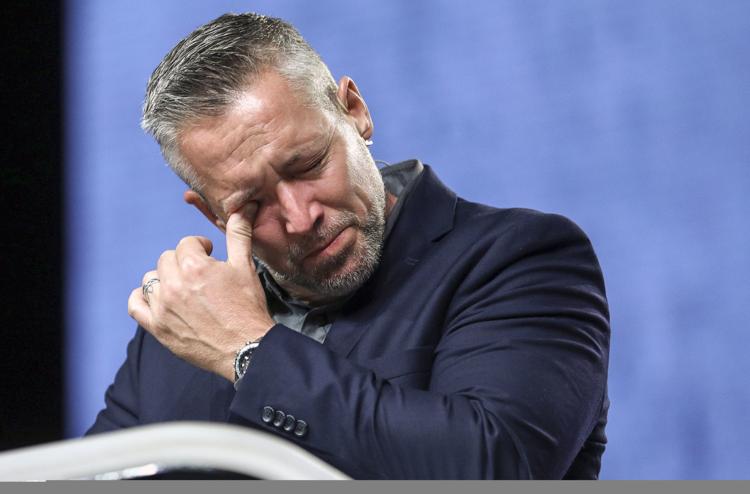Our View : Southern Baptists up Front about Abuse
Winston Salem Journal
Southern Baptists said many of the right things about sexual abuse during their recent Convention, but they didn’t take enough of the right actions. The Southern Baptist Convention, the largest assembly of Baptists in the world, has been shaken by reports of sexual abuse on the part of clergy and church volunteers. Last year, a woman went public with allegations that her church’s youth pastor sexually assaulted her when she was 17. Then, earlier this year, two Texas newspapers published detailed accounts of abuse involving 380 church leaders and volunteers and more than 700 victims, over 20 years. Southern Baptists are facing the same challenge that the Catholic Church, the Boy Scouts and other groups have confronted: What should they do to atone for years of sexual abuse and, possibly, cover-ups of that abuse? And, even more important, what should they do to keep it from happening again? J.D. Greear, the president of the Convention, did several good things. Greear, the head of a network of churches in the Triangle area, acknowledged that the allegations were true, and that denominational leaders had sometimes not dealt with them properly. He came up with recommendations and made sure the sexual abuse scandal was the No. 1 agenda item at the Convention’s annual meeting last week. Some good things happened. The 8,000 delegates, called messengers, in Birmingham, Ala., took the first step to amend their constitution to expel churches that mishandle sexual abuse. They also passed a resolution condemning sexual abuse as “evil” and calling on government officials to review statutes of limitations. They voted to set up a committee to review questions of abuse. They listened to abuse victims, and they prayed for forgiveness for having protected institutions over people. Greear was in tears as he prayed for the courage to make changes. But the messengers failed to make some reasonable, recommended changes. They did not vote to set up mandatory training on sexual abuse issues for church leaders. They did not vote to set up a sexual offender database that might keep predators from moving from one church to another. They did not vote to put one of the women survivors on the credentials committee that considers expelling churches. Opposition to some of these changes was rooted in the traditional Baptist “autonomy” of churches. Unlike Catholics, Baptists historically have no formal denominational hierarchy. They band together in various groups, including the Convention, but each church makes its own decisions about clergy, ordinations and other matters. The main sanction the Convention can take is to kick out churches of whose actions it disapproves, such as those that allow women ministers or gay marriage. But in practice, Southern Baptists in recent decades have pressured individual churches in many ways, mostly to drive out more liberal and moderate members and push conservative positions. The Convention could do more than it has to prevent sexual abuse. Setting up a database would provide useful information to help individual churches. The Convention could offer sexual abuse training and put the same kind of pressure on churches to go along that it does on such issues as keeping women out of the pulpit. There are ways to do more than passing resolutions and praying for forgiveness and change. If the Southern Baptists are sincere in wanting to atone for past failures and prevent future abuses, they need to translate their words into action.
|
.
Any original material on these pages is copyright © BishopAccountability.org 2004. Reproduce freely with attribution.
